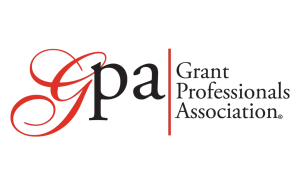General operating awards have always been highly prized by nonprofits, but in the era of COVID-19, they have become lifelines helping many nonprofits survive. As funders loosen restrictions and turn toward general support, nonprofit managers must be prepared to respond with solid proposals that check off all the boxes.
“A general operating request is somewhat different than a request for project-specific funding,” said Barbara Floersch, chief of training and curriculum of The Grantsmanship Center in Los Angeles, Calif. “Sure, there are similarities. But there are also differences.”
An operating proposal should include the same categories of information as would be included in a project-specific proposal, but with a couple a couple of major adjustments in viewpoint. A project-specific proposal describes one particular problem and the activities the organization will carry out to address it. The proposal describes what the nonprofit will do if it is awarded grant funding.
On the other hand, an operating proposal describes all the problems the nonprofit addresses, explains how the organization is currently addressing those problems, and demonstrates that the organization’s work is making a substantial difference. “This type of proposal is about what the organization is doing now,” said Floersch. “It must make the case that the work is needed and produces significant results.”
Here’s a brief rundown of what to include in your grant request for general operating funds.
Summary – In one short paragraph, identify your organization, explain how the grant will strengthen and sustain your work, and identify the amount you are requesting.
Introduction to Your Organization – Keep this short. Provide a snapshot of your history and explain your mission.
Problem – Explain the issues your organization is tackling, including the target groups you work to assist.
Outcomes – Describe the results of your organization’s work. A general operating grant will help continue the impact of your services, so shine a strong light on the positive changes and benefits your programs produce.
Methods – Describe your organization’s current programs. A bulleted list with solid but brief information on each program will do. Be sure to include how many people you assist and how much service you deliver each year.
Evaluation – Explain the data your organization collects and how it assesses results. Be sure to express the organizations commitment to continually improving its work through using the data.
Sustainability – Even though your organization needs general support, be clear that the grant wouldn’t amount to throwing money onto the deck of a sinking ship. Funders need confidence that their investment will fill leaking holes, strengthen operations, and help you continue your good work. It is especially helpful if you can point to diverse income streams, donations from your board of directors, and a history of solid financial operations.
Budget – Summarize your organization’s annual budget into general categories. This will provide a quick look at the organization’s overall financial situation and show how a general operating grant will fit in. If funders want more detail, they will ask.
Your organization’s credibility and track-record will weigh heavily in whether you win general operating awards, and you are more likely to get operating grants from funders who already know and trust you. ©Copyright 2020, The Grantsmanship Center










